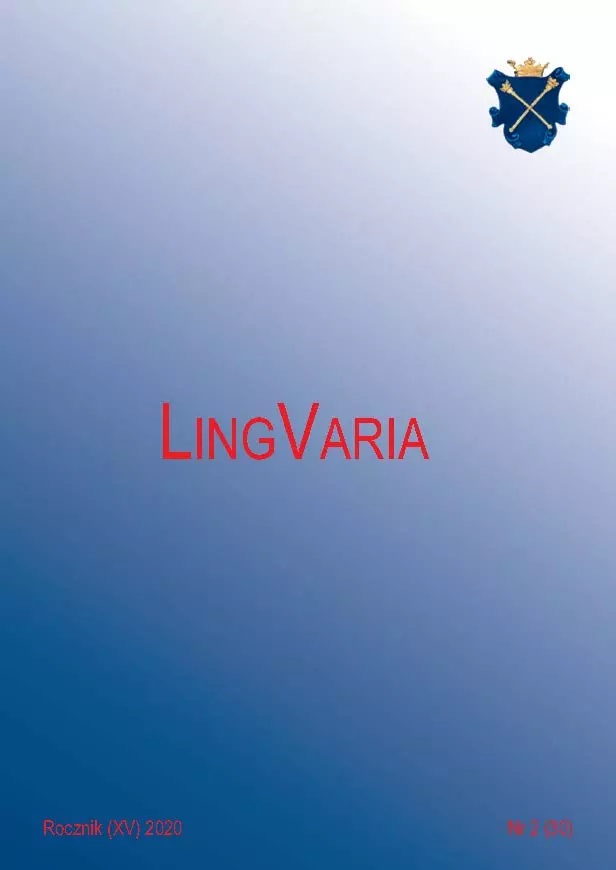Metajęzykowe działania na tekście osoby dwujęzycznej
Metalinguistics Operations on a Bilingual Person’s Text
Author(s): Bronisława LigaraSubject(s): Language and Literature Studies, Foreign languages learning, Theoretical Linguistics, Comparative Linguistics
Published by: KSIĘGARNIA AKADEMICKA Sp. z o.o.
Keywords: metalinguistic actions;bilingualism;translation;linguistic mediation;Zygmunt Krasiński
Summary/Abstract: The paper presents the traces of metalinguistic operations reflected in the process of translation into Polish (L2) performed by Zygmunt Krasiński, of two audiences in 1857 and 1858, that the Polish- -French bilingual author had with Emperor Napoleon III. Both audiences concerned the so-called Polish cause, la cause polonaise. They constituted a spoken discourse co-created by both participants of those communicative events, and their common code was the French language (L1). Napoleon III demanded strictly confidential audiences, however Krasiński, thanks to his outstanding bilingual competence, transferred the spoken discourse he memorized in extenso in L1, into the sphere of the Polish language (L2). The translations of the audiences, written down in statu nascendi, reveal the process of emergence of the target text in the genre of linguistic mediation. This process included the act of consolidating in Krasiński’s memory of a series of replies uttered in L1, and then the act of their translation, recording in L2 in the form of a text that is semantically equivalent to source dialogues. The translation of Napoleon III’s words, foreign words, and the auto-translation of Krasiński’s own words reflect metalinguistic operations which result from his bilingualism, i.e. from the fact that both French and Polish were his first languages. Metalinguistic operations result from interpretative relations that can occur between two languages which both inhabit the mind of a bilingual person, so that one language becomes the metalanguage for the other one. Krasiński realized the translations exactly as bilingual speech which contains explicit traces of his metalinguistic operations. They take the form of code switching, double language thinking, interference, and negotiation of common meanings in the situation where linguistic units of L1 and L2 differ. The translation of the audiences shows translation as a special type of Krasiński’s communication with the Polish national community: the transcript made them available to Polish recipients who did not know the French language. Simultaneously, Krasiński’s translation excluded from among potential recipients the speakers of French, as Polish was a language unknown to French elites in the 19th century, and in a sense was a secret language for them.
Journal: LingVaria
- Issue Year: 15/2020
- Issue No: 30
- Page Range: 273-296
- Page Count: 24
- Language: Polish

